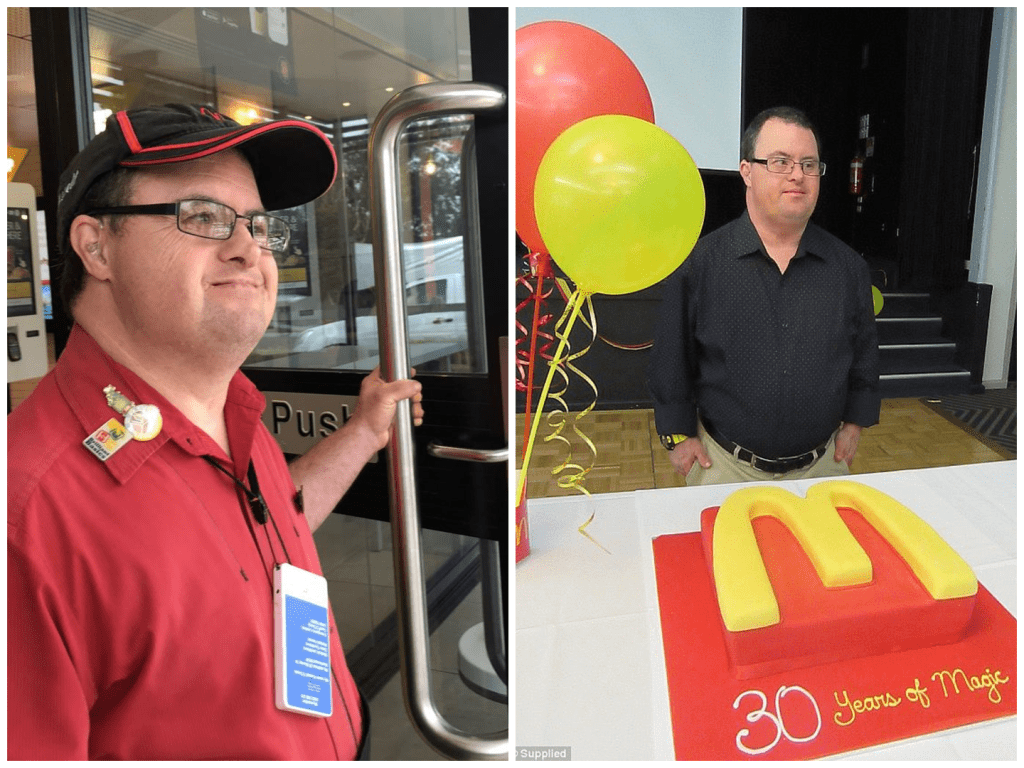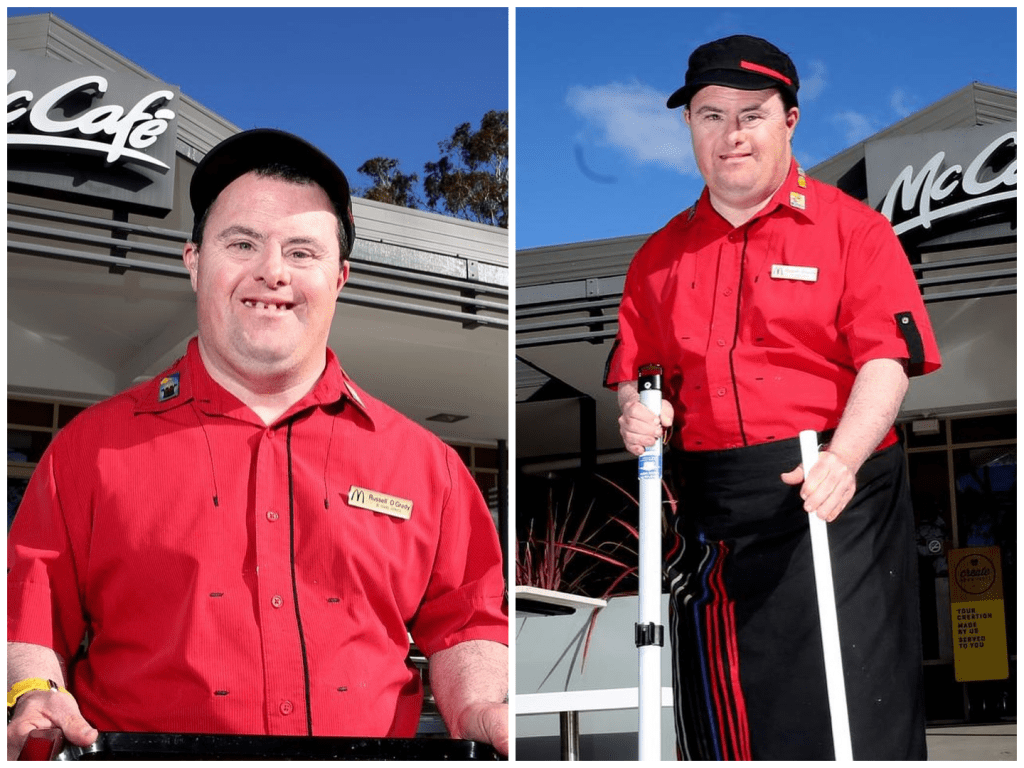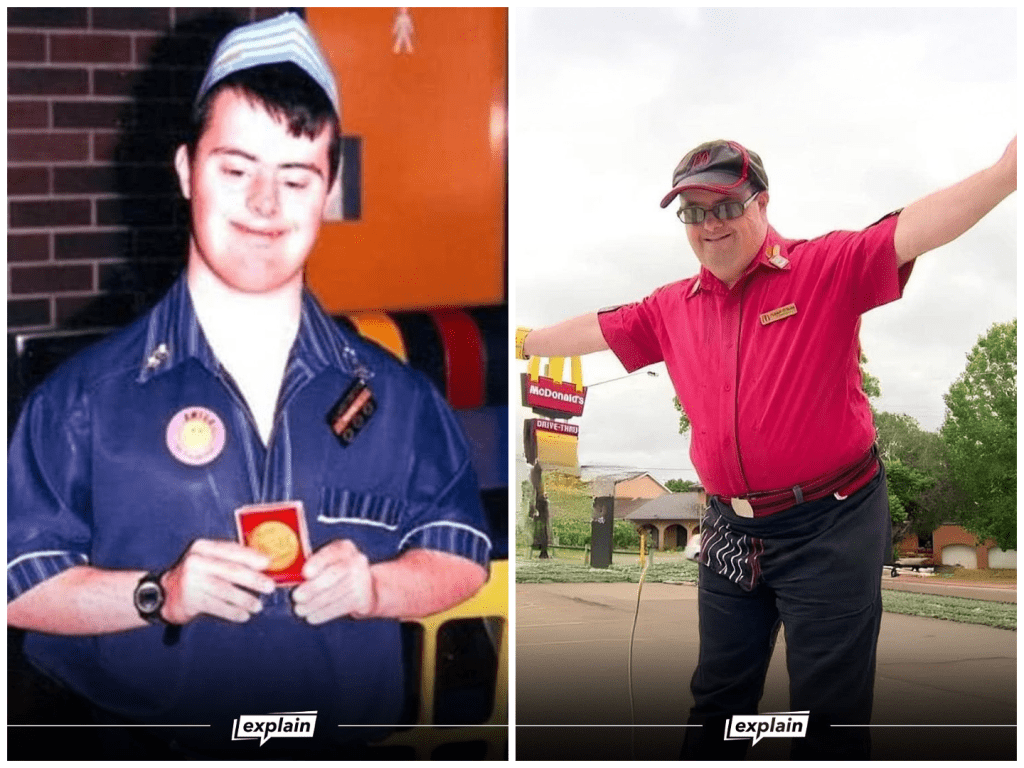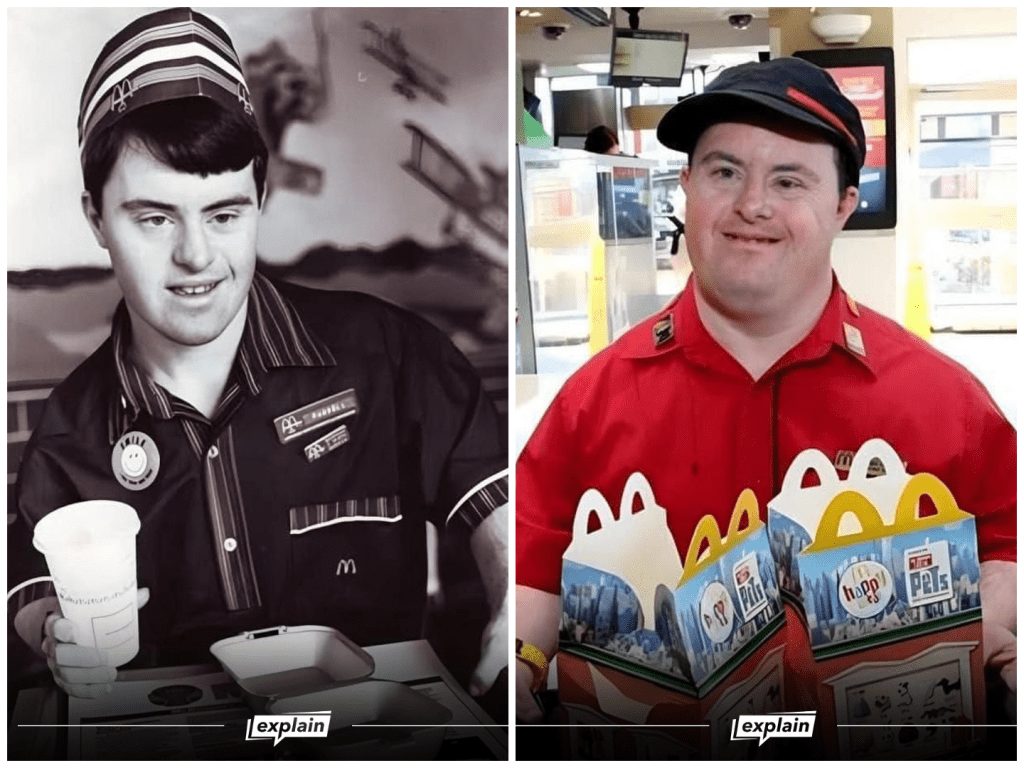He Served Fries with a Smile for 33 Years — How One Man with Down Syndrome Became an Australian Icon of Kindness and Inclusion
There are stories that break your heart, and then there are those that heal it. The life of Russell O’Grady was one of the latter — not because it was grand or loud or made headlines every week, but because it quietly touched thousands of lives, one cheeseburger and one smile at a time.
Born in 1968 with Down syndrome, Russell’s future in the eyes of the world was always meant to be “limited.” Back then, society wasn’t ready for inclusion. People with disabilities were often pushed aside, hidden away, and told they would never fit into a workplace, let alone thrive in one. But Russell, and the people who loved him, believed differently.

In 1986, through the Australian government’s program for supported employment and a partnership with JobSupport, Russell was offered an opportunity that would ultimately reshape public perception across an entire country — a job at McDonald’s in Northmead, a suburb of Sydney. He was just 18 years old when he put on the famous red uniform for the first time. And for the next 33 years, he never took it off.
Russell became a local legend. He wasn’t just “the guy at McDonald’s.” He was Russell — the guy who remembered your name, who asked about your day, who made your kids laugh while wiping down tables, who danced behind the counter when a good song came on, and who did it all with pride, humor, and a heart as big as Australia itself. Customers often lined up just to have Russell take their order. People brought their children to meet him. Teachers used his story as an example of strength and perseverance. He didn’t just work at McDonald’s — he gave it soul.
He was never seen as a burden. His coworkers called him “a friend to everyone,” and management said his dedication and work ethic put many others to shame. He loved his job, and he took it seriously. And in return, he was loved right back.
Over the years, his story quietly spread far beyond Northmead. News outlets picked it up, TV crews came to interview him, and he eventually became something of a national inspiration. Photos of him grinning in his McDonald’s cap went viral, and his story became proof that people with disabilities don’t just deserve a chance — they deserve to be celebrated.
For Russell, it was never about the spotlight. He just loved being around people. He loved the routine, the independence, and the pride of earning his paycheck every week. He knew every corner of that restaurant, every machine and cleaning schedule, every little task he’d memorized over the decades. McDonald’s wasn’t just where he worked — it was where he belonged.

In 2019, after 33 years of dedicated service, Russell O’Grady retired. The decision was made due to health reasons, but it didn’t make saying goodbye any easier for the community that had grown up with him. On his final day, McDonald’s held a celebration in his honor — not just with cake and balloons, but with tears, hugs, and stories from coworkers and customers alike. His parents, who had fought so hard in his early years to give him a normal life, were there too. They saw their son not just as someone who overcame the odds, but as someone who quietly shattered them for others.
His father, Geoff O’Grady, once said, “He’s very affectionate, dearly loved, and appreciated… He’s just so well-known and popular. He’s sort of a hero.” And he was right. Russell didn’t ask to be a symbol, but he became one anyway — not through speeches or movements, but through actions that spoke louder than anything else.
It wasn’t just about inclusion. It was about dignity. Russell proved that when given a real opportunity, people with Down syndrome — or any disability — don’t just show up. They shine. They bring light into places where no one expected it. They remind us that compassion and patience aren’t weaknesses — they’re superpowers.
Russell’s story has since inspired businesses across Australia to rethink their approach to inclusive hiring. JobSupport and similar organizations often cite his success as a case study for what happens when you stop focusing on what people can’t do and start celebrating what they can.

After his retirement, Russell lived a quieter life with his family. Though his public presence faded a bit, his legacy didn’t. He passed away peacefully in April 2023, just four years after stepping away from the job he loved so deeply. His funeral was attended by hundreds — coworkers past and present, lifelong customers, neighbors, advocates, and even complete strangers who had been moved by his story.
There’s something poetic about the fact that Russell’s greatest impact came not from a podium or a camera lens, but from a fast-food counter. In a world that constantly rewards fame and flash, he reminded us that the most powerful kind of influence is the one that makes people feel seen, respected, and loved — even if it’s just for a few minutes in a McDonald’s line.
Russell O’Grady wasn’t just a McDonald’s employee. He was proof that a job can be so much more than a paycheck. It can be a purpose. A place to belong. A reason to wake up every morning. And in his case, a way to change the hearts of an entire country.
He served smiles for 33 years. And the world will be smiling for many more because of him.


